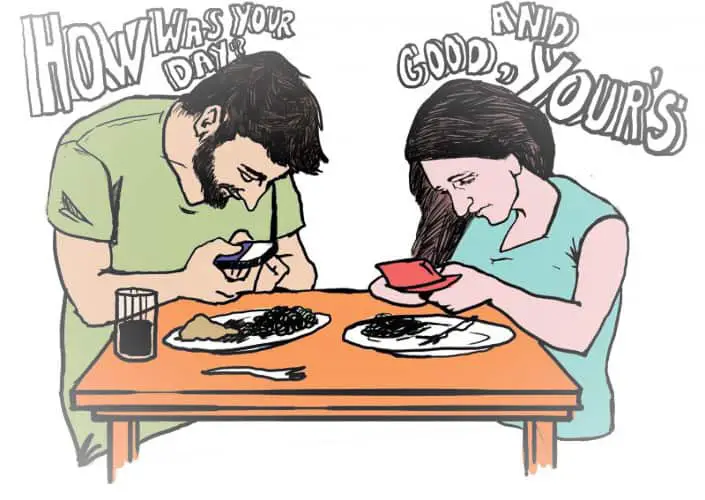Does social media influence the development (and upkeep) of our basic social skills?
Instant messaging, video chats, and meme culture are changing the way we communicate…, and not always for the better.
Is it possible that the necessary social skills for surviving, even 50 years ago, are swiftly being replaced by new abilities, methods, and new ways of communicating?
Well, yeah. Of course!
The real question is how is social media affecting the way we communicate, what are the positive and negative sides to this, and where do we go from here.
Let’s Dive In.
Has Social Media Changed How We Socialize
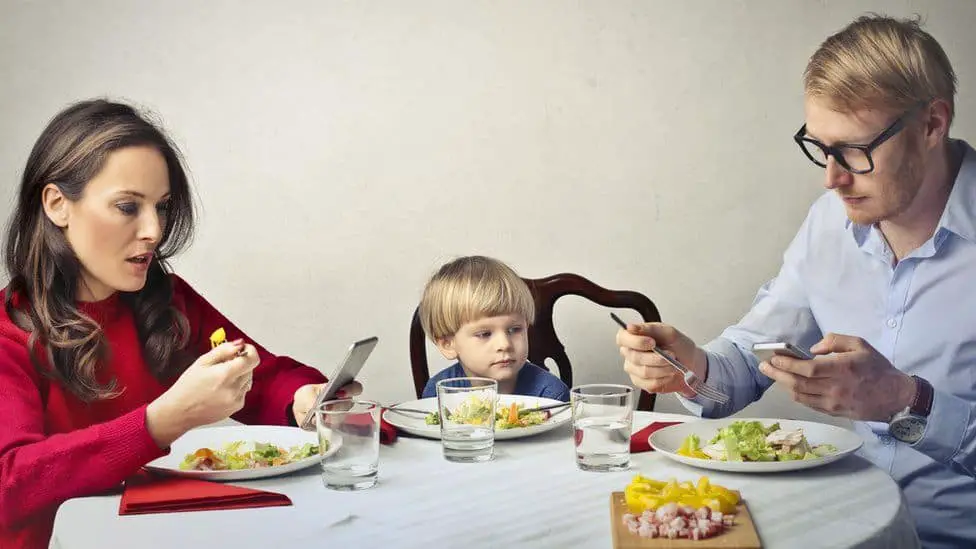
Social contact used to be something you get dressed and go outside to do.
Now, you can sit at home with no pants on, and type angry messages to completely anonymous strangers through a screen, and that technically qualifies as a social interaction.
Times have changed.
It should come as no surprise that social media has changed the landscape of human interaction.
Social media has changed the way humans communicate faster and more dramatically than any invention in history (with the possible exceptions of the printing press and the radio).
The fact that we are spending more time socializing through screens and less time socializing in person has to have an effect on our communication skills
According to social media and political marketing strategist Mandy Edwards, social media caused some of our core social skills to atrophy. Mrs. Edwards has found that more and more people are becoming incapable of carrying on a normal conversation with-out checking their smartphone every 2 minutes.
Social media has become more engaging than meaningful real conversation.
But it’s not all bad, social media is a double-edged sword. It’s connected people around the world and done incalculable good. But it also can distract us, become addicting, and leave us susceptible to media influence and manipulation.
What “”Social Skills”” is Social Media Affecting ?
‘’social skills’’ can mean a lot of things, but in general terms, social skills are learned behavior’s used to communicate with others.
According to Joanna Buttfield, occupational therapist and executive director of “Kid Sense” child development center….,
“A person has strong social skills if they have the knowledge of how to behave in social situations and understand both written and implied rules when communicating with others.”
Social Risks Of Social Media Use
We’ll get into the many benefits of social media below, but with the benefits comes some risk as well.
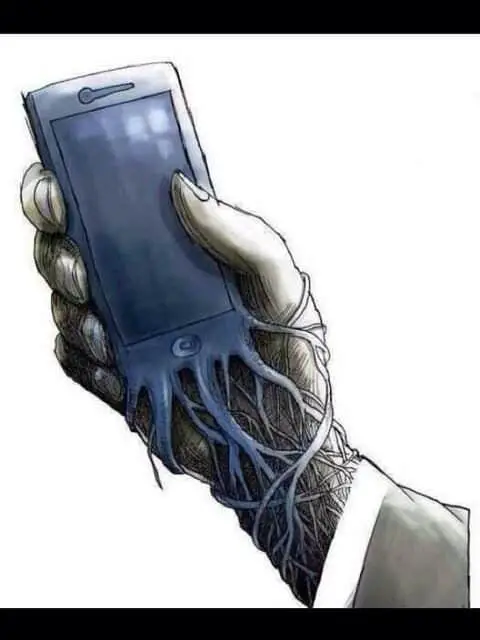
Well being connected to the world with instant access to the collective consciousness of the internet has its benefits, spending too much time on the internet means less time for physical communication IRL (in real life).
It’s only natural that the skills you don’t use, slowly diminish, and you lose.
Here are some of the social risks we take by overusing social media, the internet, and screen time.
Less Responsive to Emotions, Social Cues, and Nonverbal Cues
Less face-to-face interaction means less time to learn these skills, and less time to upkeep these skills. As a result, people are very slowly declining in our ability to understand each other’s emotional cues, body language, and other non-verbal cues.
According to clinical psychologist and executive director of New York Behavioral Health, Dr. J. Ryan Fuller, when children have too much screen time it can curtail the face-to-face experiences that are needed to develop and master important social skills.
Increased Pressure To Fit In
One odd effect of social media is its tendency to drive people to organize into cliques.
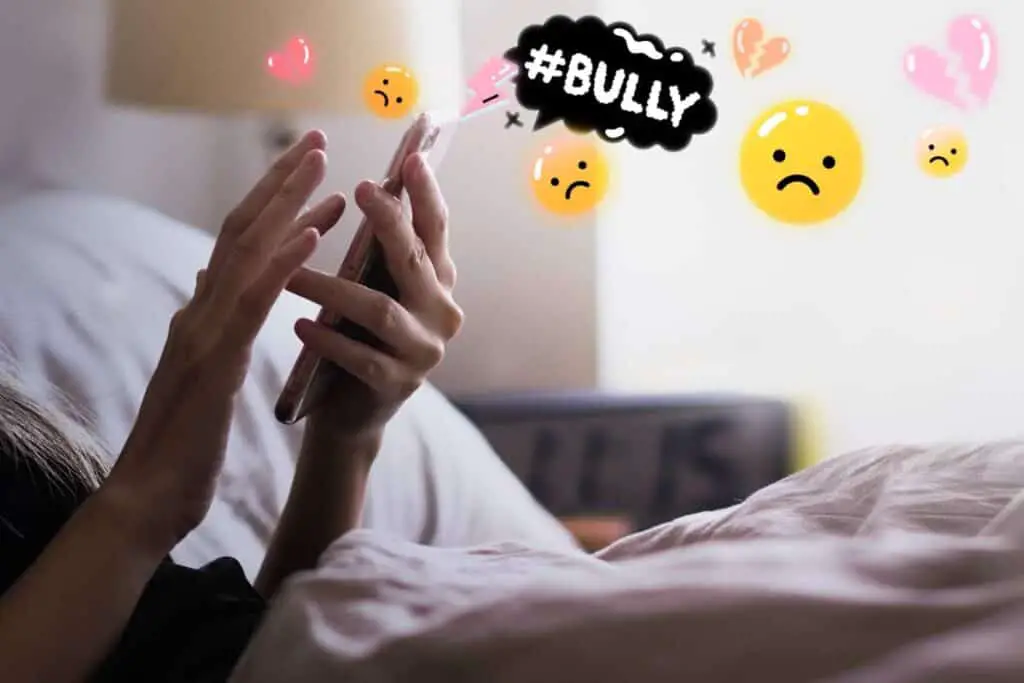
Redditors frequently mention the “Reddit Hive Mind” for example. And when when someones trending on twitter it can feel like theres a lot of pressure to “go with the crowd”.
There’s always been societal pressure, but social media’s omni-presence ads a new element.
Throughout human history, being exiled was considered the second worst punishment for a crime after execution. We’re hard-wired to seek approval and community from our peers. The chance of being rejected or cast out is enough to make all but the most stubborn or disinterested of us fall in line.
This carries over to real life, too. Social media reinforces existing cliques and groups by promoting like-minded content optimized by algorithms for maximum engagement.
Reduced Eye Contact and Physical Contact
Eye contact is an overlooked but vital part of life. As described by social psychologist Ilan Shrira, we even have a “gaze detection system” built into our brains that tells us when someone is looking directly at us. The fact that we have such mechanics hard wired into our brain tells us just how important eye contact is in our lives.
But with the rise of social media, eye contact is sadly lacking in most of our social lives.
It’s well known that hugs are good for your mental and even physical health thanks to the release of endorphins and hugs calming the nervous system. More social media has a strong correlation with less physical contact.
Growing Loneliness
Because of the reasons above – less face to face time with friends and loved ones, more isolation, more time alone looking at screens – we are looking at a time of unprecedented loneliness.
Looking at other people’s carefully curated lives makes us long for what they seem to have (they don’t actually have it either, but they want you to think they do).
This makes us feel isolated, unloved, unliked, and lonely, even when we can reach out and talk to anyone we know instantly.
According to Dr. Jeremy Nobel, MD from Harvard Medical…
“Asking if social media makes you lonely and depressed is a little like asking if eating makes you fat. The answer is yes, absolutely, but not always, not in everyone, and not forever.”
Reduced Attention Span
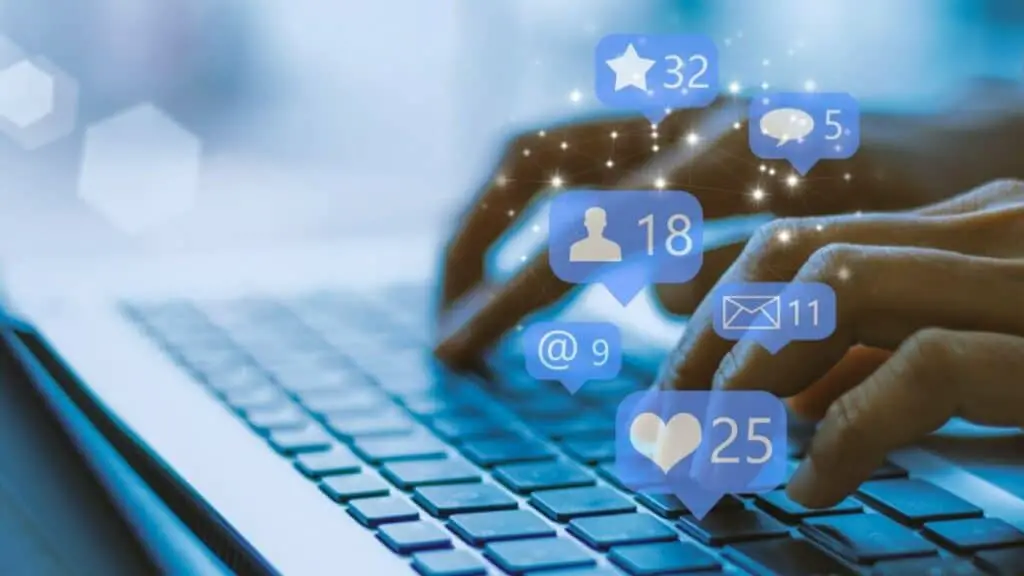
The internet, and social media in particular, is designed to be addictive and distracting. There are teams of people whose job it is to get your attention to their site, and keep your eyeballs on the screen as much as possible so they can sell you stuff.
The biggest side effect of this is that it’s messing with our ability to keep our attention on one thing at a time.
There have been many studies and experts pointing out the risk social media poses to the health of our attention span. The Ohio State University has done a magnificent job compiling the studies for further reserch and public knowledge.
Conversational Boredom
Our brains are hard-wired to need a “moment between moments” to fully process the full contect of what’s going on.
Apps such as Tiktok take advantage of this by showing us so much information in so many different contexts (different short videos) that we don’t get the time we need to adjust, so our brains tend to surrender into a cloud of dopamine-saturated fog.
That’s part of what makes apps addictive, and it also makes us bored by a regular old conversation. As a result of shortened attention spans and getting accustomed to being constantly bombarded with stimulation, a sit-down talk with someone in person isn’t going to keep our attention or interest for very long.
Recent research published by Kent State University found that “social media use increases boredom, and homework decreases boredom”
Social media allows your brain to surrender to stimulation, while homework forces your brain to overcome challenges and find solutions.
Instant Gratification
On a social medium, we can get that small hit of dopamine whenever we want it, so we push the buttons and/or keep scrolling like while we take a break from reality.
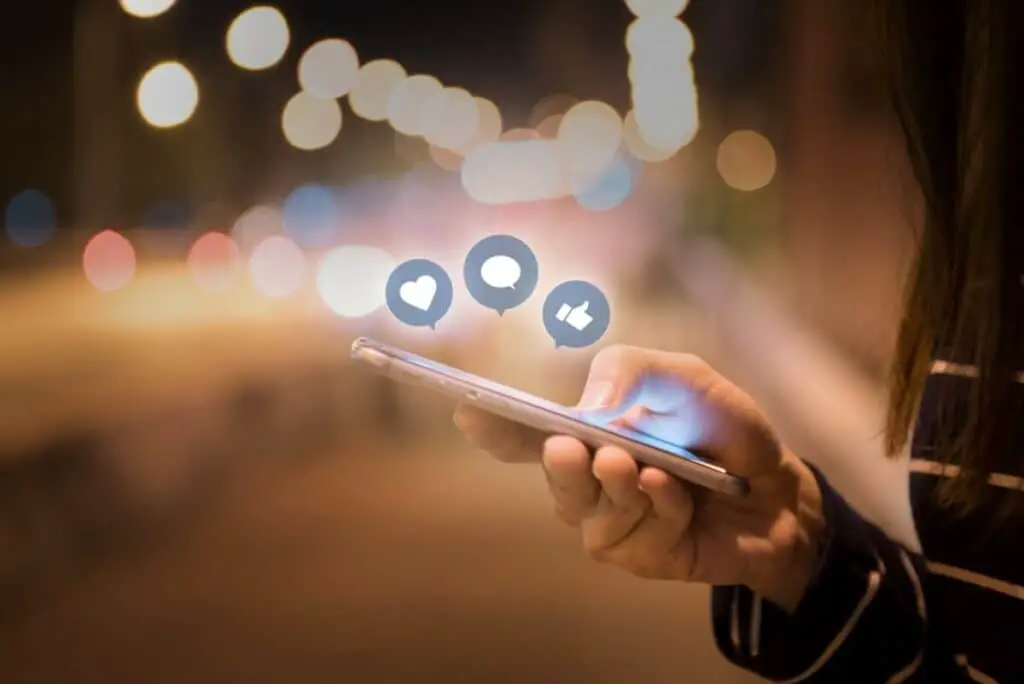
Social media is steadily hacking the chemistry of our brains to keep us addicted and keep eyeballs on the screen.
In the real world, that’s conveyed with generally less patience for long-term rewards and interactions that are not instantly entertaining.
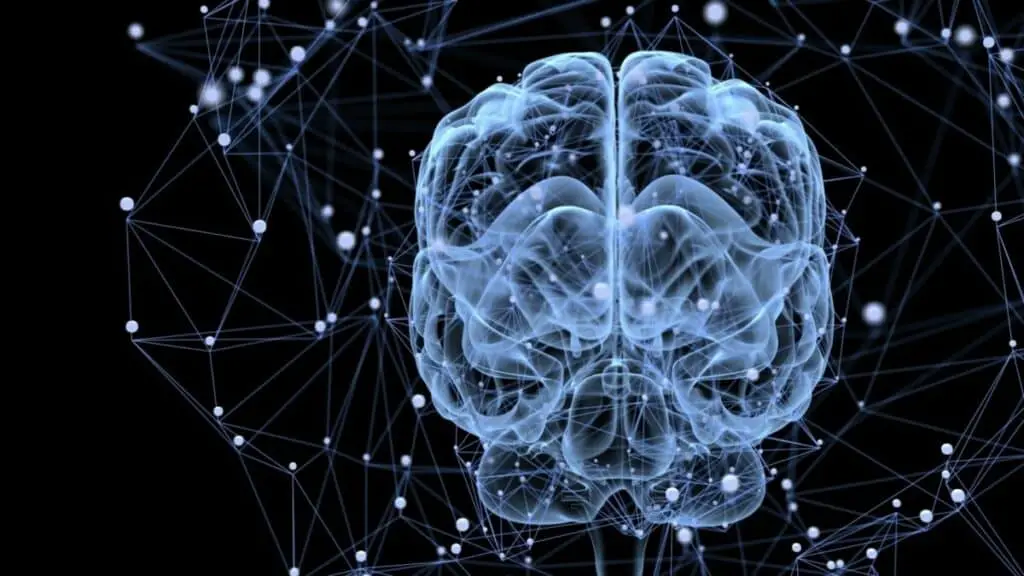
Cue more shallow and superficial interactions everywhere you look.
Social Anxiety
In 2015 Dr. Ashley M. Shaw from the University of Miami, Department of Psychology, published a study that “found that greater social anxiety symptoms were associated with spending more time on FaceBook.”
Reduced Conflict Resolution Skills
Social media carries a sense of anonymity, depersonalization and dehumanization. That means we feel empowered to be way more ghoulish to each other online than we ever would offline.
So how does this affect our social skills?
Well, an online disagreement can be blocked, ignored, or escalated into profanity. But if you fall out with a friend in real life, these conflicts really have to be resolved or the friendship can be endangered.
Today, we spend so much time online that we often don’t develop or maintain the skills necessary to avoid and resolve conflict.
Lack of Accountability
Similar to the above point, we don’t feel accountable for our actions online. That means we can act with impunity, calling people whatever horrible things we want and generally behaving like our worst selves….And getting away with it – zero consequences.
Spending time in that mode of existence, feeding our attention and energies into behaving this way is bound to spill over into our everyday lives.
We are the results of our habits, which means if we spend a lot of time being horrific to each other on the internet, our real-world communication skills are going to erode.
Most people would never say what they say in youtube comments to someone in the real world.
Benefits Of Using Social Media
People, particularly older generations, love to demonize social media as the root of all evil in the world today.
But there’s no denying that social media represents an enormous achievement of technical and social development. And it’s not going anywhere, whatever your or my personal opinions of it.
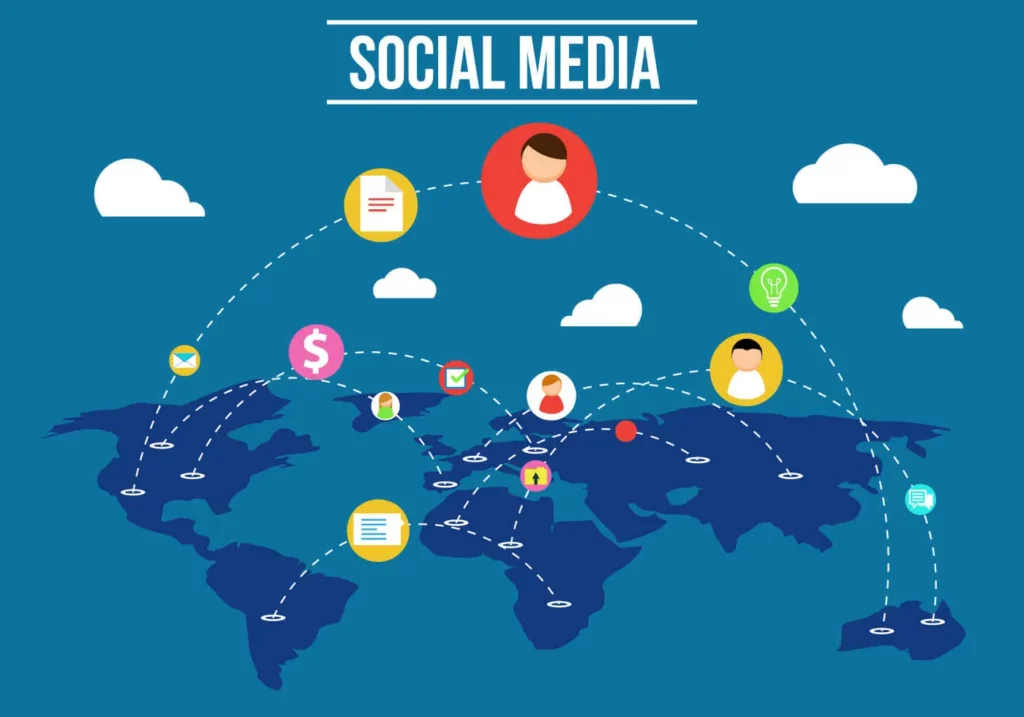
Social media companies are some of the largest corporations in the world because social media has massive societal benefits.
Instant connection to the world
Anyone can find their community so easily today. Social media can be a great force for good when it comes to people connecting to each other and sharing information.
Events like the Arab Spring and the Hong Kong protests were publicly known and even organized using social media. But so were riots the January 6th Insurection. Social media makes it easier than ever to find like-minded people and organize with them for fun and important events.
Diversity Of Contact And Opinion
By erasing previous communication barriers social media gives us new options to connect with people worldwide.
With more worldwide connectivity, we can consciously expose ourselves to a wide diversity of information, and opinions. That type of worldwide instantaneous accessibility has never before been possible in human history.
Store of collective consciousness (collective will of humanity)
A crowd of people exhibits a different kind of collective behavior that the individuals in that crowd might not on their own. This is a kind of collective consciousness.
So what happens when we take more than half of humanity and put them in a kind of crowd together? The internet provides a pretty decent representation of the collective consciousness. And the collective unconscious.
Big data companies are already using this kind of information to learn new things about human behavior that are only possible because of being able to examine data sets of this size.
If we as individuals could access this kind of information, we could understand more about ourselves and more abut each other.
Do-It-Yourself Background Checks
A bit of a niche use-case, but still an important one that applies to many of us frequently. Thanks to social media, not only can you look up someone who you’re thinking of dating to look for red flags, but you can also do this with employers, restaurants, cafes, and companies you want to know more about.
Importance of Face-To-Face Communication
In 2017 a study published by research professor Dr. M. Mahdi Roghanizad found that
face-to-face meetings were 34 times more successful than text based communication, like email.
You’ve probably heard the saying that 90% of language is non-verbal. That’s actually somewhat true. It’s not an exact measurement, but that saying goes back to the 60’s when psychology professor Albert Mehrabian developed the “7%-38%-55% Rule”.
Final Thoughts: Social Media Is Changing The Way People Get To Know One Another
Whether you’re on it or not, social media is has already become a factor in how we live our lives. Social media effects our politics, affects our local communities, and our individual brains. Ultimately it’s up to us to use it as a tool for positive change.
We also can’t ignore the risks that come with the use of any new technology.
Who knows, maybe 20 years from now we’ll have worked out the teething problems with social media and happily live in a seamlessly interconnected world of peace and harmony. Or maybe online discourse will devolve into its ultimate form: all of the people of the internet divided perfectly in half creating meme’s about the “other side”.
Loved what you read?
Hit that share button and let the world in on the secret – we’d be thrilled!
Got thoughts? We’re all ears for your feedback, corrections, or a good old chat. Don’t be shy; drop us a line.
And hey, don’t miss out on our curated list of must-reads in the recommended books section.
Big thanks for diving in with us today!


